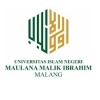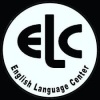Teachers’ Reflections on Teaching Mathematics in English: A Consideration for Developing ESP Course
Abstract
This research aimed to identify the Reflections done by mathematics teachers when delivering material when teaching mathematics in international schools. The study was conducted at Permata Bangsa Elementary School, which follows the Cambridge Curriculum and involved mathematics teachers from this school. This study used a Qualitative Method. Data were collected through interviews to obtain in-depth insights, and an interactive analysis method was used. The research found that they use the Team teaching method to improve their English fluency by studying from reference books and other print and online sources and working with their fellow teachers. Mathematics teachers actively aim to increase their knowledge related to mathematics through continuous learning, using special applications, book references, and YouTube online materials, attending webinars, exploring educational websites, collaborating with colleagues, and leveraging technology and online resources. The study's findings provide valuable insights for designing ESP courses for mathematics teachers and help teachers better prepare their English competence.
Full Text:
PDFReferences
Alsamadani, H. A. (2017). Needs analysis in ESP context: Saudi engineering students as a case study. Advances in Language and Literary Studies, 8(6), 58–68.
AMRI, F. E. H. (2021). the Lecturers’Challenges and Strategies in Teaching English for Specific Purposes (Esp) Through Spada Uns At Sebelas Maret …. http://e-repository.perpus.iainsalatiga.ac.id/id/eprint/11505
Apsari, R. A., Sariyasa, Nourma Pramestie Wulandari, & Tabita Wahyu Triutami. (2020). Analisis Kebutuhan Pengembangan Buku Ajar English for Mathematics. Jurnal Pendidikan Dan Kebudayaan Missio, 12(2), 80–86. https://doi.org/10.36928/jpkm.v12i2.384
Audi, R. (2011). Moral Value and Human Diversity. In Moral Value and Human Diversity. https://doi.org/10.1093/acprof:oso/9780195312942.001.0001
Bruno, L. (2019). Never A Dull Moment- Teaching and the Art of Performance. In Journal of Chemical Information and Modeling (Vol. 53, Issue 9).
Freeman, B. (2012). Using digital technologies to redress inequities for English language learners in the English speaking mathematics classroom. Computers & Education, 59(1), 50–62. https://doi.org/10.1016/j.compedu.
Fuchs, L. S., Fuchs, D., & Compton, D. L. (2012). The early prevention of mathematics difficulty: its power and limitations. Journal of Learning Disabilities, 45(3), 257–269. https://doi.org/10.1177/0022219412442167
Ghasemi, A. A., & Mozaheb, M. A. (2020). Developing EFL Learners’ Speaking Fluency: Use of Practical Techniques. MEXTESOL Journal, 45(2), 2021.
Halladay, J. L., & Neumann, M. D. (2012). Connecting reading and mathematical strategies. The Reading Teacher, 65(7), 471–476. https://doi.org/10.1002/TRTR.01070
Indrasari, N., & Indrasari, N. (2016). English for Specific Purposes: A Need Analysis at The Second Semester of Physics Education Students of IAIN Raden Intan Lampung in The Academic Year of 2015/2016. English Education: Jurnal Tadris Bahasa Inggris, 9(1), 161–172. http://ejournal.radenintan.ac.id/index.php/ENGEDU/article/view/425
Jiang, A. L., Zhang, L. J., May, S., & Qin, L. T. (2020). Understanding novice teachers’ perceived challenges and needs as a prerequisite for English curriculum innovation. Language, Culture and Curriculum, 33(1), 15–31. https://doi.org/10.1080/07908318.2018.1518452
Gregory, M. (2001). Curriculum, Pedagogy, and Teacherly Ethos. Pedagogy, 1(1). https://doi.org/10.1215/15314200-1-1-69
Khalifatussalam, R. I. (2021). Low Literacy in Indonesia: Understanding and Factors That Influence It. Low Literacy in Indonesia: Understanding and Factors That Influence It, November.
Kiswanto, Apriyani, I. D., Yanto, H., Hajawiyah, A., & Djajadikerta, H. G. (2020). Determinants of environmental disclosure in Indonesia. Journal of Environmental Management and Tourism, 11(3). https://doi.org/10.14505/jemt.v11.3(43).22
Kinnear, P. (2020). English for Specific Purposes. The Routledge Handbook of Sociocultural Theory and Second Language Development, 357–377. https://doi.org/10.4324/9781315624747-23
Kurniawati, A. (2021). Teachers’ Reflections on Teaching Mathematics in English: A Consideration for Developing ESP Course. ELE Reviews: English Language Education Reviews, 1(2), 72–87. https://doi.org/10.22515/ele-reviews.v1i2.4300
Nguyen, B. H., Haworth, P., & Hansen, S. (2019). Challenging ESP teacher beliefs about active learning in a Vietnamese university. Teacher Development, 23(3), 345–365. https://doi.org/10.1080/13664530.2019.1598481
Namaziandost, E., Hashemifardnia, A., & Shafiee, S. (2019). The impact of opinion-gap, reasoning-gap, and information-gap tasks on EFL learners’ speaking fluency.Cogent Social Sciences, 5(1), 1630150. https://doi.org/10.1080/23311886.2019.1630150
Ningsih, N. (2021). Developing English teaching and learning materials for mathematics study program. Edukatif: Jurnal Ilmu Pendidikan, 3(4), 1112–1119. https://doi.org/10.31004/edukatif.v3i3.501
Poedjiastutie, D., & Oliver, R. (2017). English Learning Needs of Esp Learners: Exploring Stakeholder Perceptions At an Indonesian University. TEFLIN Journal - A Publication on the Teaching and Learning of English, 28(1), 1. https://doi.org/10.15639/teflinjournal.v28i1/1-21
DOI: https://doi.org/10.18860/jeasp.v7i2.25069
Refbacks
- There are currently no refbacks.

This work is licensed under a Creative Commons Attribution-ShareAlike 4.0 International License.







Editorial Office:
Pusat Pengembangan Bahasa
Program Khusus Pengembangan Bahasa Inggris (PKPBI)
Universitas Islam Negeri Maulana Malik Ibrahim Malang
Gedung C lantai 1
Jl. Gajayana No 50 Kota Malang, Jawa Timur, Indonesia
Kode Pos 65144, Telp/Fax : (0341) 570872
Email: jeasp@uin-malang.ac.id
JEASP : Journal of English for Academic and Specific Purposes is licensed under a Creative Commons Attribution-ShareAlike 4.0 International











